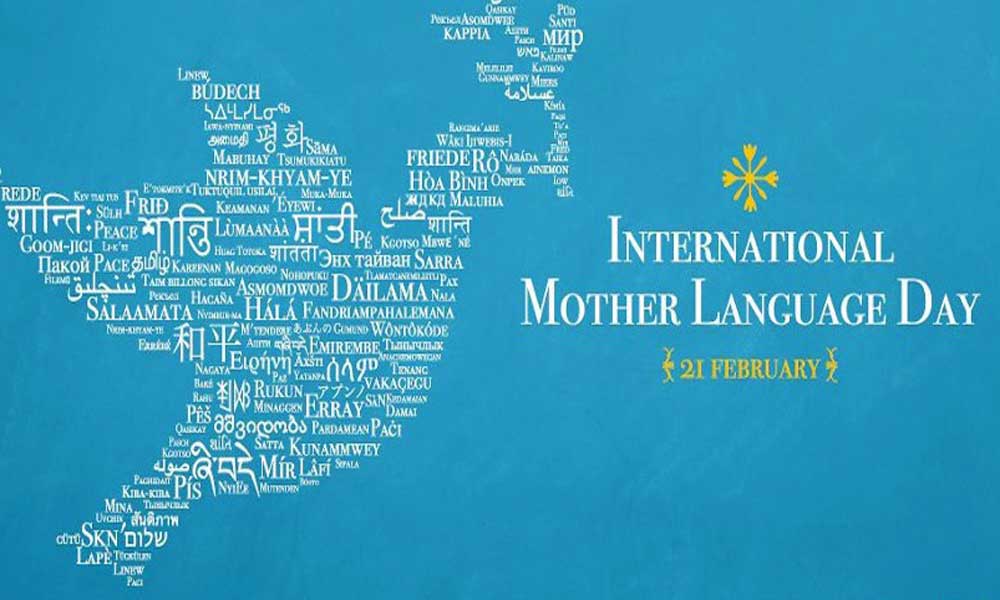While learning and speaking in foreign languages is considered a great achievement especially in India, today is the day when we should probably celebrate our own mother languages, it being the ‘International Mother Language Day’.
For those of you who don’t know about this: first declared by UNESCO, the day is observed to promote and encourage awareness of the diversity and variety of the linguistic and cultural heritage of the world. Started in the year 1999, the International Mother Language Day has its 15th anniversary this year.
While 21st February is recognized for celebrating multilingualism, 2008 was marked as the International Year of Languages.
The origin of this day was in Bangladesh in 1952 when University students protested for getting ‘Bangla’ recognized as one of the national languages of Bangladesh or East Pakistan as it was then called. However, the students were killed by the police. Thus in memory of these students, and to fulfil their wish, the day is looked forward to for increasing linguistic tolerance and awareness.
2009 saw UN General Assembly asking its member states “to promote the preservation and protection of all languages used by people of the world.” Though these measures have been taken to protect, preserve all different languages, their dialects and scripts of the world, much has been done by the human race despite of all this to establish the dominance of a certain specific language over all others. Take for example, Hindi. Even though it has the recognition of being one of India’s official languages, and even the lingua franca of the country, many of us wouldn’t even know the meaning of some simple words in Hindi but can very well spell those words when asked in English. Many college students and even corporates don’t know what ‘Gantranta Diwas’ is, while when you talk about Republic day, everyone knows why and when it is celebrated.
While we uphold the religious and linguistic tolerance issues and social justice for world peace and harmony among nations, how many of us can respect and live peacefully with the linguistic diversity of India? If we could have, then 250 out of the 780 languages spoken in India would not have died out.
Though Hindi is the third most commonly spoken languages in India after Mandarin and English, it has still not been accepted and appreciated by people who speak it, let alone others who do not even know the language. You may find people in Bhutan grooving to Bollywood music and trying to grasp Hindi while the natives of the language may even shy away from speaking in the language. Yes, it’s true! Also, the language changes in the way it is spoken in different states of the country but with globalization and migration on the rise, the original dialects and terms have got mingled and thus languages have withered off while completely new languages have emerged that have been a result of a mixture of two different languages altogether. Hinglish, for instance, has come into play because people have started using Hindi and English words together while speaking.
Since 2001, we have 122 major languages while we had 780 of them in our yesteryears in India.
This year the UNESCO plans to make people realize the important role language plays, with every state participating in its own way to “inclusion in and through education: Language counts”, the theme that UNESCO is trying to promote for this year’s International Mother Language Day.
Bangladesh will witness the whole country participating in the Ekushey Book Fair and the Ekushey Poetry Festival and joining people who visit the Shahid Minar memorial with flowers to honour those who died during protest for Bengali recognition in 1952. Washington D.C., on the other hand, will co-host the Language Policy and Peacebuilding symposium, where language’s importance in world peace and security issues will be addressed and brought to the fore.
Nairobi University and Kenya have come up with a three-day-conference plan on language and education. Central Asia and Congo are also taking active part in assessing, understanding and bringing about the comprehensive value of 7102 known living languages of the world.
While UN takes its own initiatives to bring about language awareness and tolerance, can we not come together to celebrate our own mother tongue, India being such a rich and diversified sub-continent?





